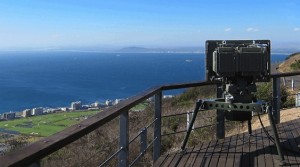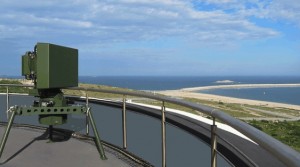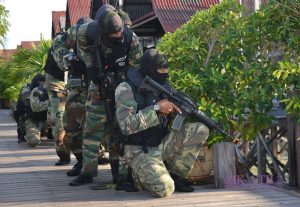SHAH ALAM: Back in 2015, Malaysian Defence reported the then Defence Minister (same as the current one, except he is now known as the Senior Defence Minister) as saying that the ministry will be putting up a new coastal surveillance system (CSS) comprising of ground based radars in the eastern areas of Sabah. The area is under the Eastern Sabah Security Command (ESSCOM) set up following the Lahad Datu incursion in 2013.


The new CSS installed in 2016 were the Hensoldt (then Airbus Defence and Space) Spexer 2000 Coastal AESA ground surveillance radars of which five were purchased. Airbus sold its sensor division to Hensoldt in 2018. According to the 2018 budget these radars cost some RM50 million (basically RM10 million each). The CSS comes under Joint Force Headquarters 2 (ATB 2) as with other military operations in ESSCOM.

Last year, the Defence Ministry issued a tender for a three year maintenance programme for the Spexer radars with four companies responding with bids ranging from RM25 million to RM44 million. However, no contract has been awarded yet. Despite this, on June 18, 2022, the Defence Ministry issued a tender to dismantle, pack, transport and store all the five Spexer radars and all of its associated equipment at a site to be determined by the ATB 2 (see below).
Perkhidmatan adalah untuck membuka ( Dismantle), membungkus, mengangkut, menghantar serta menyusun peralatan komponen bagi Radar Spexer di 5 lokasi CSS dan menghantar hingga ke Destinasi Akhir iaitu di Kem Sri Wangsa,Tawau Sabah atau lokasi yang akan dinyatakan dalam SST.

I have no idea whether this means the Spexer radars will be decommissioned or simply they are being repaired and stored for later use at a more benign site. I am guessing that they are being decommissioned as it is most likely that the cost of maintaining them is getting expensive as their performance were not up to mark. In any case, retiring a piece of kit (if that is really the case) just six years after its service entry, is a clear sign of a bad procurement decision.
— Malaysian Defence
If you like this post, buy me an espresso. Paypal Payment

View Comments (7)
Just this radars, others still on going
Marhalim,
Was it a bad procurement decision or yet another example of us getting something but failing to allocate on time the funds needed for support/maintenance?
I think if the decision to procure in the first place was sound, I don't think there will be any issue with the maintenance. Of course it can go both ways, really
Do they put these radar inside a radome or something?
Thales actually been posting opening for radar engineer based in sabah, I guess to maintain these radars. I've applied couple times too but looks like they're looking for a guy with radio frequency and microwave engineering background and not simply some generic electronic engineer (which is pretty hard to find in Sabah as there no university that offered such courses in the state)
No idea on the radome
To be fair, it could had been problems with the supplies instead seeing how airbus bailed out from it. Radar that cost RM10 mil each would cost around rm5 to rm9 mil to maintain for another 3 years is pretty steep. Might as well bought a new one instead.
An exposed coastal radar without any protection from the environment. Yeah not such a good idea.